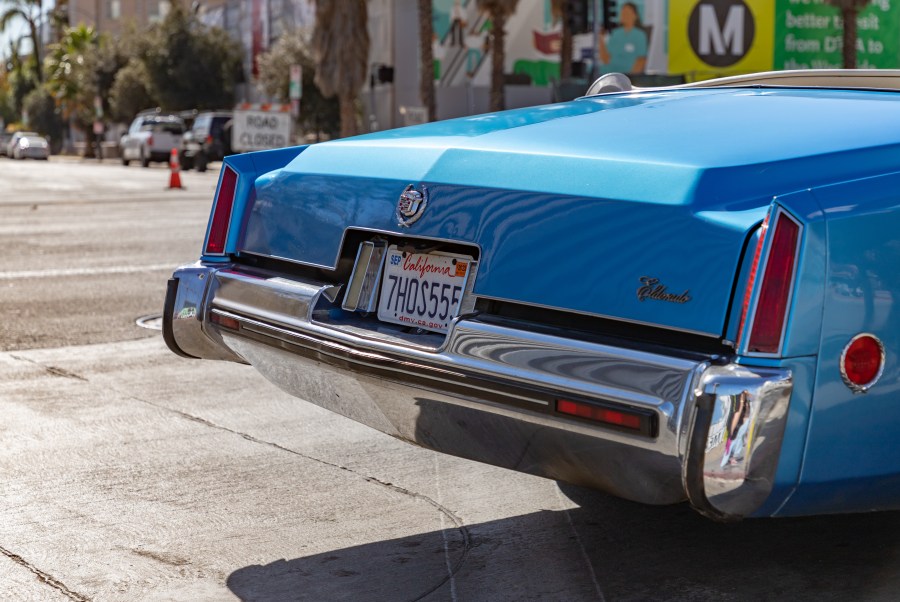(KSWB/KUSI) — Think your car’s license plate could use a little flair? Maybe a sleek tinted cover or a reflective finish to throw of those toll road cameras? Think again. In California, something as simple as adding a little personalized style to your license plate could result in a misdemeanor.
Under California Vehicle Code Section 4464 (CVC 4464), your license plate has one job: be completely, unmistakenly visible. When vehicle owners attempt to get creative with those front and back plates — that’s when things can get a little dicey legally.
The law explained
CVC 4464 is simple — don’t alter your license plate.
Specifically, it’s illegal to slap on a clear or tinted cover that affect visibility. Using reflective sprays or materials that throw off toll or traffic cameras is also barred under this law. Vinyl wraps, often referred to as “skins,” and paint aren’t allowed either.
Additionally, adding fake numbers or stickers — including decals —to the plate or on the registration sticker is against the law. Same goes for blocking any part of the plate with a frame, tow hitch, bike rack, or even dried mud from an off-roading adventure.
Basically, if a police officer or red light camera can’t read it clearly, then it’s in violation.
Penalties for violators
According to California authorities, violating CVC 4464 is a misdemeanor punishable by a fine of not less than $500. On top of that, getting caught with an altered or blocked license plate could lead to your vehicle getting towed and your plate being confiscated and returned to the DMV.
“You’ll be on the hook for impound fees — and left without a plate,” warned officials with the San Diego Police Department. “License plates are property of the State of California. It’s not your plate to modify.”
Though some drivers with altered plates may get off with a warning, that’s not always the case.
How to customize your plate legally
For those adamant about wanting a personalized license plate, there are some legal options.
Special interest license plates
Drivers can obtain a personalized or special interest plate through the DMV by completing the Special Interest License Plate Application.
“Special interest license plates, available for autos, commercial vehicles, trailers and motorcycles, offer a unique opportunity to support causes you care about, while special license plates allow you to recognize service, achievements, licenses, status, historical significance, and various occupations,” the DMV noted online.
Some examples of special interest license plates to choose from include those advocating for breast cancer awareness, national park conservancy, spaying and neutering pets, and the environment. Others give a nod to veterans’ organizations, firefighters, California agriculture, and more.
Be prepared to pay a fee for this customization. Special interest plates could cost between $50 to $103 for the initial application. Then, there’s a renewal fee of $40 to $83 per year, depending on the plate selected. These fees are in addition to the standard registration fees.
Digital license plates
Another option for Golden State drivers is digital license plates, which were legalized under Assembly Bill No. 984. The sole provider of these plates is a a technology company called Reviver. Drivers can choose from a battery-powered option or a hardwired version.
These types of plates can be personally customized with texts, fonts and even switch from light to dark mode. They can also display emergency messages, such as Amber Alerts in abduction cases. Additionally, digital license plates have built-in tracking technology to help locate stolen vehicles.
This option is a lot pricier. Though costs may vary when purchasing from local dealerships or authorized resellers, the Reviver website lists the plates going for $899 outright. There’s also a subscription option for around $40 a month.
No matter which customization option you choose — if any — your license plate is more than a vehicle accessory — it’s a legal identification tag. And in California, it’s required to be fully visible and unaltered.
